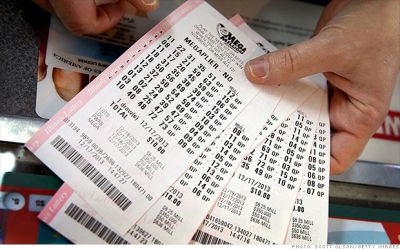
 What happens to unclaimed Lottery Money?
What happens to unclaimed Lottery Money?
Other | Wednesday 3rd December 2014 | Ben
Two years ago a ticket holder in Hertfordshire missed out on a Christmas beyond their wildest dreams when they failed to claim a £64m lottery prize – the biggest unclaimed prize of its type of all time.
The Daily Mail reported that the ticket had been purchased 180 days previously, giving the recipient plenty of time to find the small slip of paper that would change their lives. Maybe they had it in their possession from the start, but the crippling fear of an amount which could buy an Hawaiian island or warehouse full of supercars prevented them from making the call to Camelot. Maybe they were happier sticking to SuperCasino, and didn’t even know they’d won.
Or maybe they lost their ticket, like Martyn and Kay Tott in 2001. The duo knew exactly when and where their ticket worth £3m was purchased. They knew why they had chosen the numbers. They knew everything – except where it was.
The desperate couple only realised they’d won six months after the numbers were drawn. A media campaign to claim the winnings was unsuccessful and the couple’s marriage disintegrated soon after.
Their £3m and the £64m from Hertfordshire are just two of many other lottery, Euromillions, and Thunderball prizes that go unclaimed. In 2012 it was revealed that £75m a year remains unclaimed, equating to more than £1.4bn in total. And we’re no different to other nations, by the way; last year $2.04bn of lottery prizes went unclaimed in the US.
Camelot, for its part, tries to find the winners in various ways. Unclaimed prizes are announced after two weeks, identifying an area of around 100,000 people to preserve the winner’s anonymity. From then on it contacts local media relevant to where the ticket was purchased, sometimes using publicity stunts, taking out local adverts and using social media. But it doesn’t always work.
So what happens to these prizes, and the interest that accrues on them? Different nations have different ways of dealing with unclaimed money. In Canada any unclaimed prizes return to the original pot, meaning that the winnings are made a little larger every week.
In the UK? Very simple: It goes into The National Lottery Good Causes Fund.
The distribution of unclaimed money (and of course money already designated for charities and good causes) is the responsibility of 12 lottery distribution bodies across the UK with specialist knowledge.
These include Arts Council England, the Big Lottery Fund, Sport England, and the Heritage Lottery Fund, while in previous years other organisations to distribute funds included Olympic Lottery Distributor and the Millennium Commission.
The money is split between seven causes: Art, Education, Environment, Health, Heritage, Sport and Charity/Voluntary. The breadth of inclusive recipients is enormous; from £5m grants to restore theatres in Darlington (reported here by the Northern Echo), to £1.2m cycle paths in Bristol, to £100,000 for playgroups in Scotland, to £10,000 for small charities across the country.
In total the lottery has generated more than £32bn for charity since its introduction in December 1994, making grants to 430,000 causes. And it seems the pot of unclaimed winnings will only continue to swell those coffers. Camelot, the company that runs the lottery, publishes a regular list of unclaimed prizes from previous months. There’s currently a £100,000 prize unclaimed from a ticket bought in Barnet, £51,000 in Worcester, and £70,000 in Glasgow.
So it may be worth checking the official National Lottery website now – and knowing that even if you don’t want the money it will find a good home.
